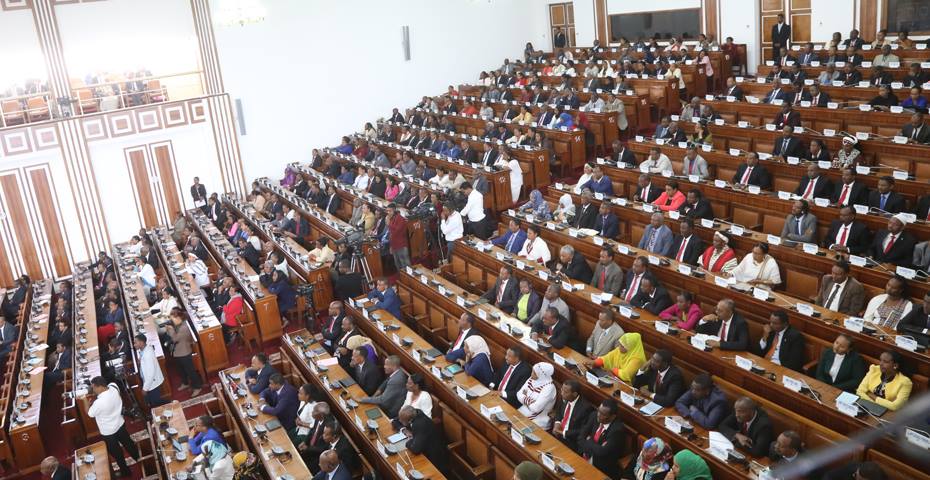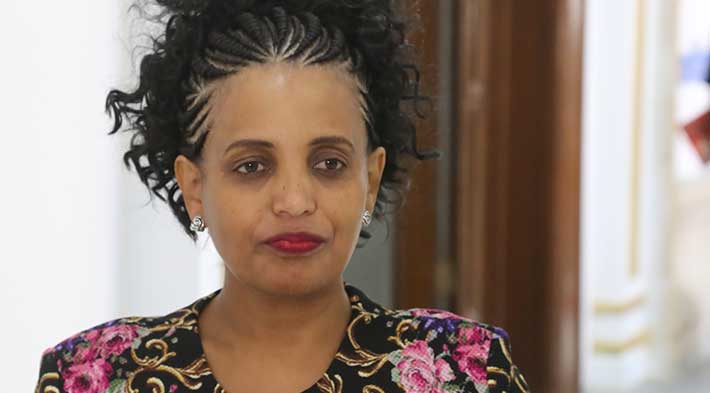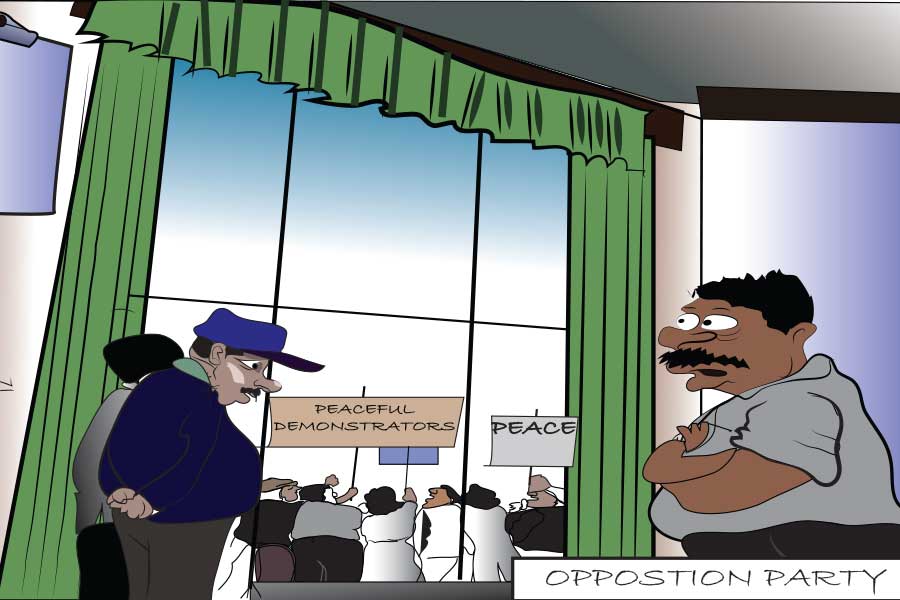
Fortune News | Aug 24,2019
Jan 13 , 2020
 The documents have been tabled to the Board, which is chaired by former judge and politician Birtukan Mideksa, for approval on December 2, 2019.
The documents have been tabled to the Board, which is chaired by former judge and politician Birtukan Mideksa, for approval on December 2, 2019.
If approved by its own board, the National Electoral Board of Ethiopia (NEBE) will soon announce a tender for the procurement of election materials for the upcoming fifth national election.
The finance and procurement team of NEBE has prepared a bid document for the procurement of election materials including stationery, notebooks and pens. The documents have been tabled to the Board, which is chaired by former judge and politician Birtukan Mideksa, for approval on December 2, 2019.
Expected to be supplied by local vendors, the materials are set to be used for the upcoming election, which is tentatively scheduled to take place by the end of May 2020. For the upcoming election, the Board planned to have 45,000 polling stations, 135,000 poll workers and close to 100,000 translucent ballot boxes.
Currently, the Board is implementing pre-electoral operational plans for the upcoming national election, according to Soliana Shimelis, communications advisor for NEBE, which has close to a four-billion-Br budget for the current fiscal year.
“We're drawing out our communication strategy,” Soliana toldFortune.
Segments of the pre-electoral operation plan include establishing a media centre at the NEBE headquarters and building an image toward transparency and openness.
About 50 million people would participate in the upcoming election, according to the SEEDS project.
As part of the preparation for the upcoming election, the NEBE is currently undergoing a rebranding. The Board has changed its visual identity, including its logo and official colours, as well as its tagline and communications strategy. Stationary materials are being redesigned and are expected to be launched this month.
Resolution Studios, a decade-old advertisement agency that came up with a winning design for a little over 200,000 Br, was contracted for the rebranding work. The Board's headquarters is also undergoing an extensive refurbishment.
The bid for the procurement of ballot boxes, ink and biometric voter registration machines have not been announced yet, according to Soliana.
“We're still working on our operational plan,” she said.
For the Sidama referendum, which took place on November 13, 2019, the Board procured 2,000 translucent ballot boxes for 4.8 million Br. It also procured 2,000 units of indelible ink at a cost of 3.8 million Br. For these procurements, the board floated a closed bid on October 11, 2019, due to time limitations, according to sources from the Board.
Hoshi Alliance Trading Plc and Dallas General Trading have supplied the ballot box with keys and ink, respectively, after winning the bid with the lowest offer. Two local companies vied for the procurement of the ballot boxes and four companies for the ink.
USAID also donated 2,000 ballot boxes for the Sidama referendum to the NEBE. The Board used a total of 1,600 ballot boxes for the referendum. The rest of the donated ballot boxes are currently at the national board’s store, which is located in Saris, Nifas Silk Laphto District.
“The used ballot boxes are still in Hawassa,” said Soliana.
Currently, the Board is conducting an evaluation of the Sidama referendum at Bishoftu (Debre Zeit). The Board announced that 98pc of voters in the referendum cast in favour of the referendum.
Dereje Zeleke (PhD), assistant professor of Addis Abeba University's School of Law, says that the Board seems to be progressing well in its preparation.
The political actors need to show a credible stance and movements for the upcoming election, according to him.
The Electoral Board might have started the pre-electoral operational plan but drawing from past experiences, the feasibility of the election happening peacefully should be looked at and the pressing issues of the peace of the country should be assessed, recommends Dereje.
During the last election in 2015, the Board estimated that 230,000 staff were required to cover 46,000 stations.
You can read the full story here
PUBLISHED ON
Jan 13,2020 [ VOL
20 , NO
1029]

Radar | Jan 01,2024

Editorial | Sep 28,2019

Radar | Mar 23,2019

Radar | Sep 14,2024

Commentaries | May 01,2020

Dec 22 , 2024 . By TIZITA SHEWAFERAW
Charged with transforming colossal state-owned enterprises into modern and competitiv...

Aug 18 , 2024 . By AKSAH ITALO
Although predictable Yonas Zerihun's job in the ride-hailing service is not immune to...

Jul 28 , 2024 . By TIZITA SHEWAFERAW
Unhabitual, perhaps too many, Samuel Gebreyohannes, 38, used to occasionally enjoy a couple of beers at breakfast. However, he recently swit...

Jul 13 , 2024 . By AKSAH ITALO
Investors who rely on tractors, trucks, and field vehicles for commuting, transporting commodities, and f...

Oct 25 , 2025
The regulatory machinery is on overdrive. In only two years, no fewer than 35 new pro...

Oct 18 , 2025
The political establishment, notably the ruling party and its top brass, has become p...

Oct 11 , 2025
Ladislas Farago, a roving Associated Press (AP) correspondent, arrived in Ethiopia in...

Oct 4 , 2025
Eyob Tekalegn (PhD) had been in the Governor's chair for only weeks when, on Septembe...